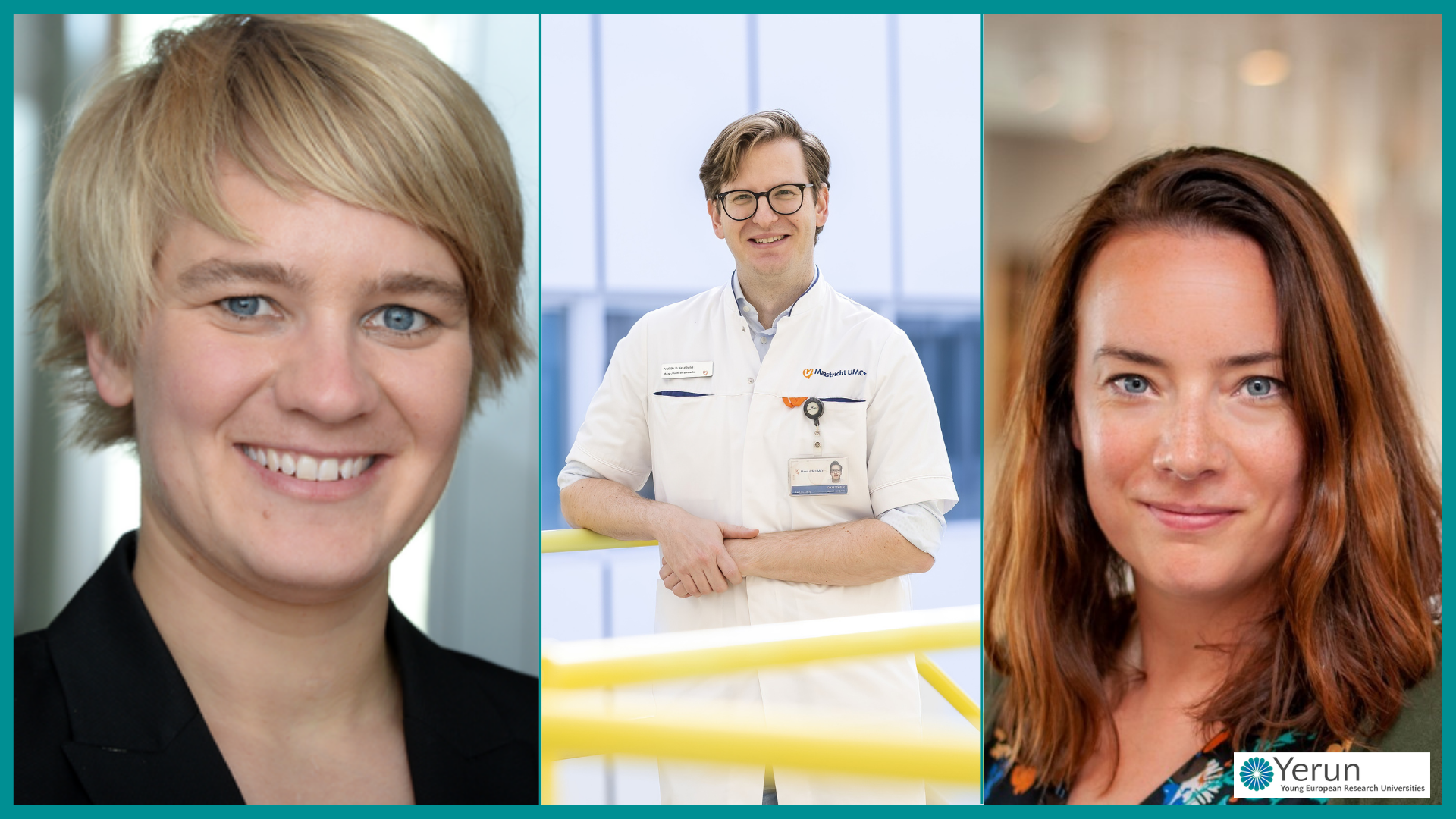Scientists Daniel Keszthelyi and Anna Beckers and Sabine van Rijt, principal investigator at Maastricht University’s MERLN Institute, have received prestigious ERC Grant for their researches.
Professor Daniel Keszthelyi received the grant for innovative research into the effect of neurostimulation in the treatment of irritable bowel syndrome (IBS). Keszthelyi is head of the gastroenterology and liver disorder department at Maastricht UMC+ and a researcher at NUTRIM, School for Nutrition and Translational Research in Metabolism. It is estimated that more than 6% of the Dutch population suffers from IBS, which is a chronic intestinal disorder characterized by frequent and severe abdominal pain, abdominal cramps, problems with bowel movements, a swollen abdomen or flatulence. A possible cause is disruption of the gut-brain axis, the communication between the brain and the gut. Keszthelyi hypothesises that autonomic neuromodulation can restore this imbalance, and this is the focus of his new research. Read more here.
Anna Beckers is an associate professor of Private Law and Legal Methodology at Maastricht University’s Faculty of Law. She received the grant to set up a team working on the development of a new legal framework for global value chains (GVCs), the interconnected trade structures that exist to produce a product, be it a mobile phone, a T-shirt, or the fuel you buy at the petrol station. GVCs have often been the subject of economic and sociological research, but they are not recognised as a legal category. The aim of the CHAINLAW project is therefore to investigate GVCs from a legal perspective. The next aim is to develop appropriate and effective legislation to regulate these trade structures. At the same time, Beckers will focus on appropriate approaches to chain liability. Her project will consider not only legal regulations, but also private documents, such as contracts between different parties, private certification systems, or technical solutions for supply chain governance such as software systems. Read more here.
Sabine van Rijt and her team are developing biomaterials for use in the treatment of cancer patients who have had surgery to remove diseased bone. The materials promote new bone growth and at the same time render any residual tumour cells harmless. In general, biomaterials that are able to repair themselves consist of polymers held together by a reversible chemical bond. This means they are flexible enough to be injected into the patient. Van Rijt aims to make biomaterials that are not only flexible enough for injection, but also mechanically strong enough for application in hard tissue, such as bone. She will achieve this by adding nanoparticles that are able to hold polymers together via multiple dynamic bonds, which makes the material stronger. Read more here.










